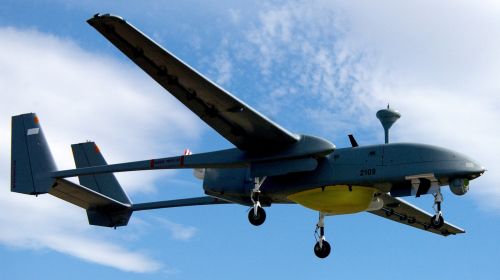
How domestic drones will affect our privacy depends on how the technology is used and deployed. And that depends on a lot of factors. Technologies never exist in isolation‚ÄĒtheir impact on society is always the result of interactions between the technology's potential, existing institutions and interests, and the law, architecture, and culture around them. We should put good privacy protections in place no matter what, but as drone technology unfolds, here are some of the factors that could influence the size and scope of their deployment within the United States:
- Sudden disasters. A commercial airline pilot recently that a drone flying at an altitude of 1,700 feet came within 200 feet of the airliner while it was coming in for a landing at JFK airport, triggering an FBI investigation. If that drone or any other drone were to cause a commercial jet to crash, or if a drone were to be used in a successful terrorist attack, a public backlash could set back the acceptance of drones in our airspace by years. Of course, Americans will tolerate an enormous amount of blood and carnage in some areas (such as car accidents and shootings), while in others (such as commercial plane crashes and any violence classified as "terrorism") we are pretty much zero-tolerance. It's hard to know where drones will fall.
- Persistent problems. Not just sudden dramatic disasters, but also stubbornly persistent annoyances could shape public policies around drones in coming years. For example, if sexual voyeurism incidents, noise complaints, or frequent minor property damage from drone crashes were to become widespread‚ÄĒor even if a media fixation on any of those things made it seem as if they were widesread‚ÄĒpressure would quickly build for new restriction on drones.'
- Conveniences. All joking aside about , it's entirely possible that, once the FAA's rules open up, drones could quickly find certain niches that make life distinctly easier‚ÄĒdelivery vehicle, real-estate surveyors, gutter cleaners, farm tools, or whatever. That would increase Americans tolerance for mishaps, disasters, or any other problems they may bring.
- Urgent needs. If drones consistently prove themselves to be indispensable in emergencies and other urgent situations, reducing suffering and saving lives, that will further increase the nation's reliance upon, and tolerance for, the technology.
- Economic benefits. Today's drone boosters talk a lot about the potential economic benefits of drones. We don't know today whether they will in fact turn out to be an enormous economic boon, or whether they will end up occupying certain limited niches without bringing the sweeping changes that enthusiasts foresee. The more direct efficiencies and economic benefits they bring, the more their downsides will be tolerated.
- Laws. The factors above will help decide what kinds of local, state, or federal laws are passed with regard to drones, and these rules in turn will have a great effect on how the technology rolls out. This is the factor that is most susceptible to democratic control, and therefore the focus of our activism at the moment.
- The negotiation between law and practice. Law is not always the end of the story, however. As I have discussed before, there is often an ongoing negotiation between what the law says and what people actually do. We see this every day in the context of speed limits and other traffic laws, but also in many other areas. When it comes to drones, we cannot assume that every law will be followed by the public (or the police for that matter; witness for example the persistent harassment of photographers). According to the law, basically nobody can use a drone today for commercial purposes, and hobbyists can't fly drones above 400 feet in altitude or in densely populated areas. But Reuters recently ran a very interesting detailing many ways that these rules are now being flouted, and some of the pressures that are pushing against those rules. Guerrilla drone operators have taken aerial videos in and , for example. Americans do have an anti-authoritarian soft spot for loveable rogues who flout the rules, but that only goes so far.
- Enforcement. Not all laws can easily be enforced, even where there is broad acceptance of them. Of course, surveillance technologies themselves could make drone rules more enforceable‚ÄĒfor example if laws required all drones to contain a transponder.
These are some of the factors that will shape how our society adapts to drone technology. It is easy to imagine a variety of future paths, from scenarios where they remain largely banned, to a situation where drones buzz overhead on a wide variety of missions, filling our skies and bringing substantial changes to the texture of American life. There is also a range of scenarios for how they could affect our privacy, political freedom, and the relationship between the individual and government.
Not just the technology, but also the policies that we put in place will determine what our future looks and feels like. And of course, if we choose not to decide, we will still have made a choice.
Learn more about domestic drones and other civil liberty issues: Sign up for breaking news alerts, , and .

